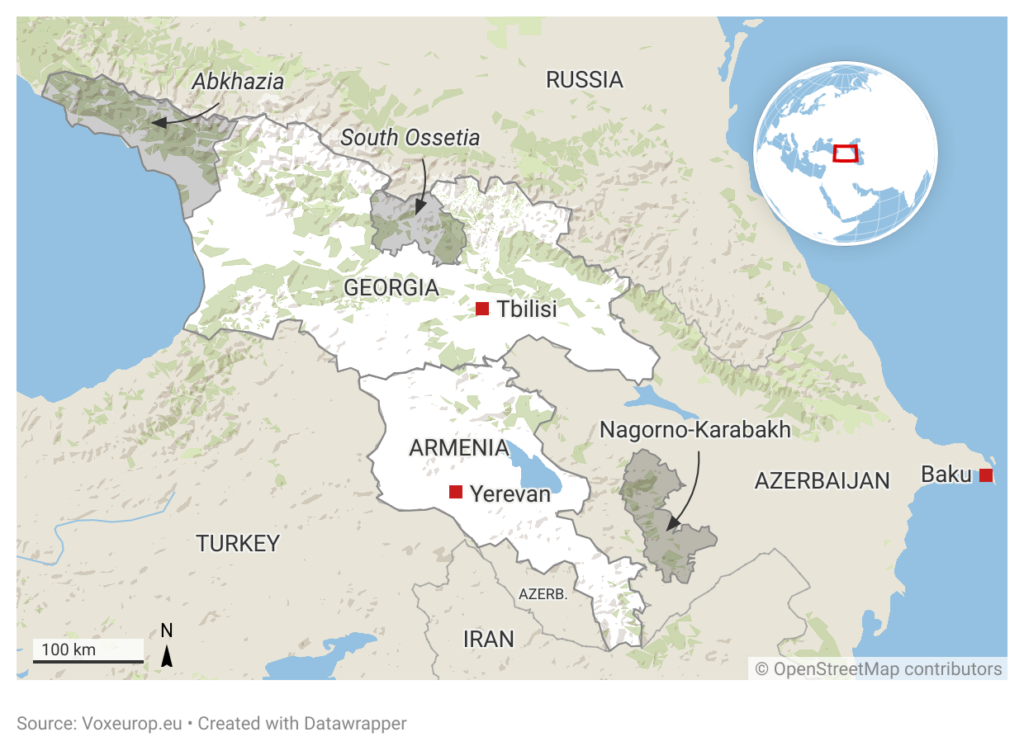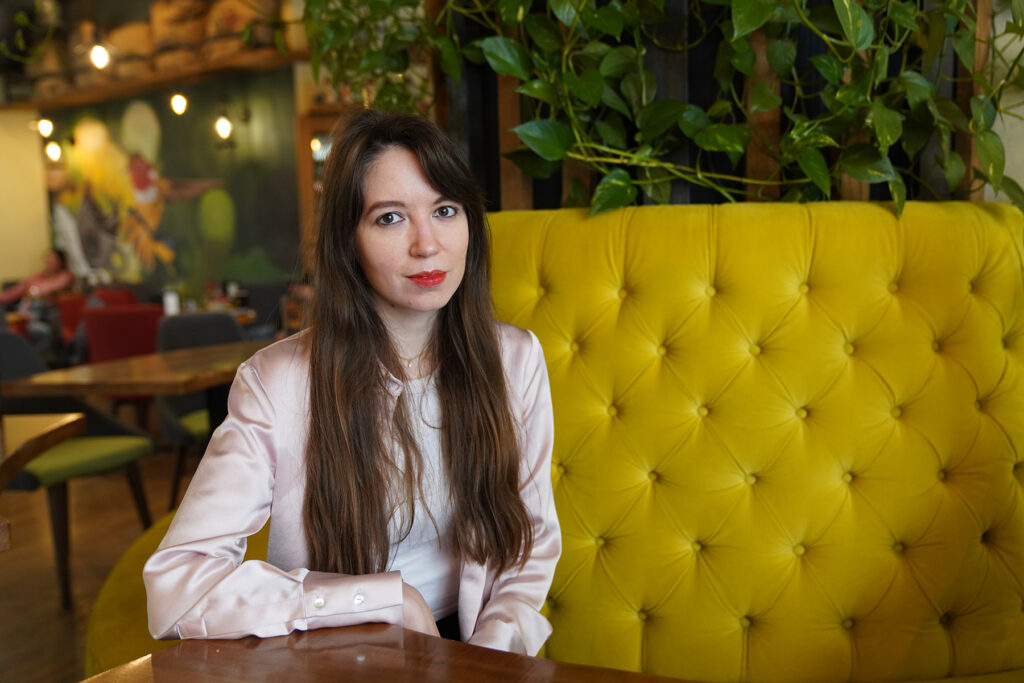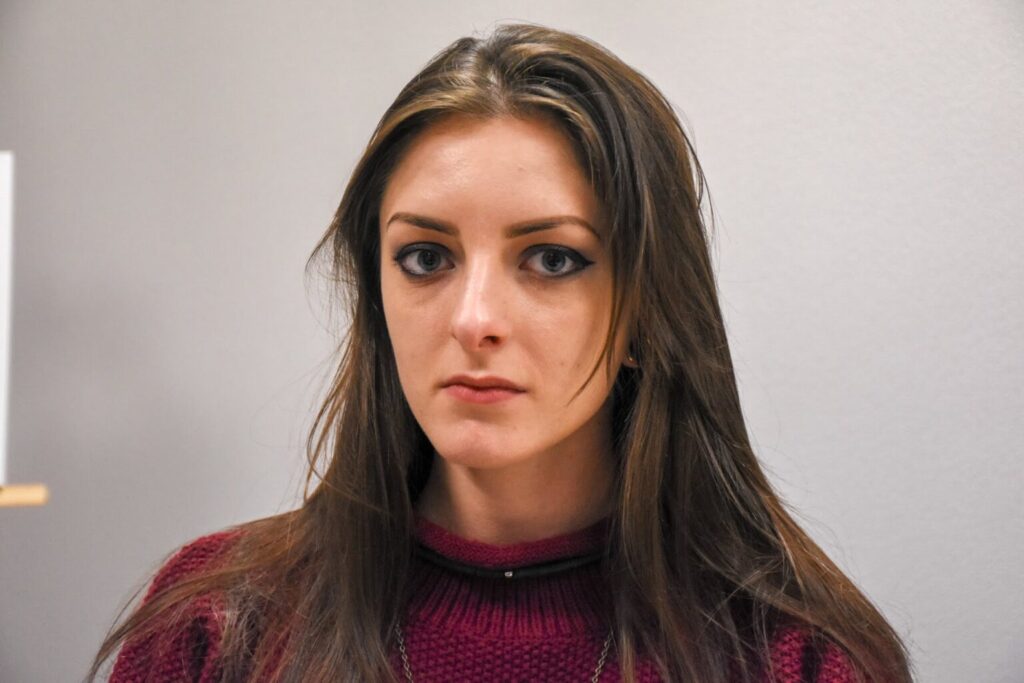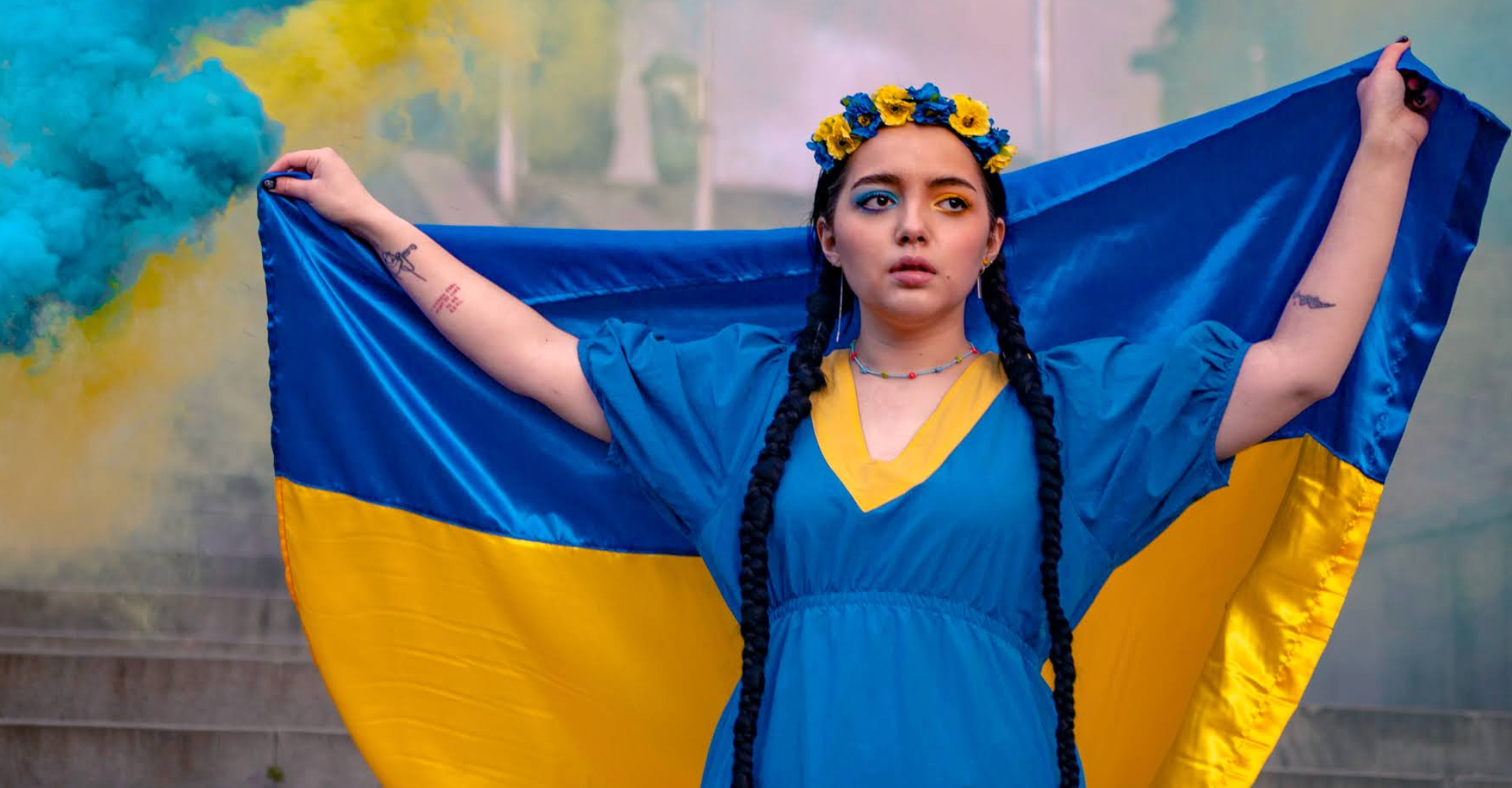“I needed to do something”, says Anatoly Sobolev. The 36-year-old digital advertising professional moved to Georgia at the beginning of March 2022, not long after being arrested at an anti-war protest in Russia. Having begun as a volunteer with Volunteer Tbilisi, an organisation that provides support to Ukrainian refugees in Georgia, Sobolev is now the director of the organisation’s development department.
Many others have found new opportunities to put their time and effort to good use. Whether helping Ukrainians find housing and work, organising protests, or educating their compatriots about colonialism and imperialism, Russian activists are finding ways to push back against Vladimir Putin’s war from abroad.
“When I left […] I thought that it would all end quickly”, says Vasilisa Borzova. “It seemed so absurd and pointless, that it was hard to imagine that the war could last for a long time.”
Borzova, who was studying for a master’s degree in Political Science and International Relations at the Moscow School of Social and Economic Sciences before she moved to Armenia. Instead, things only got worse. After an initial wave of Russians fled the outbreak of war and concomitant political crackdown, a second wave fled after the announcement of mobilisation in September 2022.
Darina Mayatskaya similarly says that the move, and the fact that she remains in Armenia a year later, were entirely unexpected.
“I was making career plans, I had come up with a to-do list for 2022”, says Mayatskaya. In Saint Petersburg, Mayataskaya had worked as a lawyer at a real estate agency, while also helping independent political candidates to run and be elected as lawmakers.
When she decided to leave, Armenia seemed the easiest option available to her: visa-free entry, direct flights from Russia, and Russians can enter with just an internal passport. She did not intend or expect to be in Yerevan over a year later.

But some who migrated have found since their arrival that they were unable to leave. Alongside increasing restrictions on where Russian passport holders can travel, a large number of Russian activists and journalists have been denied entry into Georgia, driving unease amongst many émigrés that on leaving Georgia, they might not be able to return.
Receive the best of European journalism straight to your inbox every Thursday
Vera Oleynikova, a 22-year-old activist and jazz musician, hadn’t planned to move to Georgia at all. She had frequently taken part in anti-Kremlin demonstrations and been arrested, once even having bones broken at a police station after carrying an anti-Putin poster at a protest.
After the war broke out on 24 February 2022, she continued to take part in anti-war demonstrations, and was repeatedly arrested, fined, and even followed. In June of that year, a friend told her that a criminal case was about to be opened against her, and Oleynikova decided that it was time to leave.

She bought tickets to Armenia, but was told at the airport that she was not allowed to leave Russia.
“They didn’t give me any reason why I was forbidden to leave the country. My mother took me to Minsk [the capital of Belarus] by car, and from there, I managed to fly to Tbilisi with the last money I had,” Oleynikova recalls.
A month after her arrival, Vera received the news that her mother had died suddenly. She did not return for the funeral, as her mother had told her. Both Vera and her mother knew that if she returned, it was likely that she would be arrested as soon as she crossed the border.
Fighting Putin from abroad
On leaving Russia, all the activists we spoke with sought ways to continue their fight against the Kremlin from abroad..
Some, like Oleynikova, have taken action intermittently since their arrival: attending protests, posting on social media, and contributing to fundraisers for Ukraine. Others have taken on larger and longer-running projects.
When Vasilisa Borzova realised that Armenia was not going to be the transit point she’d initially expected it to be, she launched the Ethos project: an organisation which helps refugees from Ukraine and Nagorno-Karabakh, as well as people from Armenia’s border areas who have recently suffered in the conflict with Azerbaijan.
She also notes how supportive Armenians have been, both to other Armenians affected by war and of Ethos’ work. She highlights the response to the September 2022 two-day war; after the initial attack on the country’s borders, Armenians immediately began to collect humanitarian aid.

Darina Mayatskaya says the same is true of her experience. Mayatskaya is the Armenia project coordinator for The Ark, an organisation which helps people facing persecution because of their anti-war positions leave Russia and get settled abroad.
Neither Mayatskaya nor The Ark have faced any obstruction in Armenia.
Now, the project is gradually shifting its focus to integrating Russians into a new environment and way of thinking, as well as hosting discussions amongst Russian émigrés on the factors that led to the war: colonialism, imperialism, and poor civic education. The organisation also partners with anti-war initiatives and independent projects around the world.
Victoria Krongard, a 25-year-old former medical student and activist, is similarly working to fill in the gaps her country’s education glossed over.
Reforum Space, an organisation that provides support to foundations that help Ukrainians, as well as activists and journalists from Russia, runs free anti-war events and master classes.
She says that many Russians are not familiar with the Georgian perspective on the 2008 August War, and that Reforum Space informs them of Russia’s continuing role in the conflicts in Georgia.
“In [Russian] media, all this is positioned as [Abkhazia’s and South Ossetia’s] desire”, says Krongard.
“[The war in Ukraine] is terrible. It is a crime. Putin’s fomenting of this conflict since 2014 is inhumane and unprincipled”, Krongard concludes.

“Sympathy and understanding”
Despite reports that both countries had seen a rise in anti-Russian sentiment, in Georgia in response to waves of Russian immigration, and in Armenia following Russia’s failure to provide military assistance to its ally during and following the Second Nagorno-Karabakh War, all our respondents said that they have only had good experiences in their new homes.
“The people here are much kinder. They are always ready to help”, says Artur Asafiev, a freelance reporter with RFE/RL from Ufa, central-southern Russia, who has been living in Yerevan for over a year.
He adds that because of their recent history, Armenians understand the actuality of war, and have previously dealt with influxes of refugees from the Nagorno-Karabakh wars. He admires the country’s desire to cooperate with the European Union, despite its current ties with Russia.
“Armenia is a democracy that observes laws and regulations, where any form of expression of one’s opinion is allowed, both for citizens and visitors. The police not only do not break up rallies, but also help if you turn to them․ There is a huge amount of official, accredited media covering all positions, ambulances arrive on time, and people do not show aggression toward each other”, says Mayatskaya.
In contrast to fears that Armenians might grow hostile to the increasing numbers of Russians in their country, Mayatskaya has faced negative reactions not from Armenians, but from Russian propagandists, who at some point found The Ark and began to write negative comments about their assistance to Ukrainians.
Since the Russian invasion of Ukraine, many Georgians have expressed hostility towards the influx of Russians, and polling shows that a majority of the population supports the introduction of visas for Russian citizens.
But Krongard says she found only a sense of freedom in the county.
“Here I have no fear of saying out loud that Putin and Lukashenka are bad. Here I have no fear that [for expressing my opinion] someone will report me to the security forces and I will have problems.”
Anatoly Sobolev similarly says that, since his arrival in Georgia, he has faced no hostility related to his nationality.
“I have been living in Georgia for two years now. Here, I am given the opportunity to live, no one hits me on the street, I can [talk about] my opinions, to do something that, in my opinion, is very important,” says Sobolev. “That’s why, while I’m here, I’m grateful to [Georgia]. If they kick me out, I’ll still be grateful.”
“My country was stolen from me”
The activists we spoke to all emphasised their commitment to resuming their activism in Russia given the opportunity.
“If there is any chance to change the regime, I will return [to Russia] on the first flight”, says Sobolev, adding that he believes that Russia is not currently safe for anyone.
“I miss Russia, it’s my country, which was stolen from me, and now people are being killed on my behalf. [At the moment] Russia is a big cockroach devouring its own [people]”, Sobolev explained.
Victoria Krongard similarly says that, while she does not know when she will return, she wants to return to Russia to help improve the lives of people living there.
Viktoria Krongard also says that she has faced no issues in Georgia related to her nationality, despite having heard stories about conflicts at protests demanding that Georgia’s government ceases to let Russian citizens into the country.
Vasilisa Borzova, however, says that she wants to continue helping those in need from Armenia, and would like to deepen her organisation’s ties with its host country. She says she has an idea for a project dedicated to Armenia, teaching Russian-speaking audiences about Armenia’s culture and history.
“I want somehow to thank Armenia, which sheltered us, accepted us and showed us how to live by supporting each other. It seems to me that Armenian culture can give us a lot and teach us how to be.”
This article was a joint production between CivilNet and OC Media.
👉 Original article on OC Media

